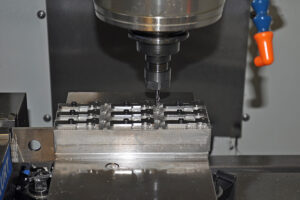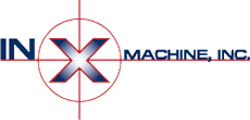 There are many different ways you can approach prototype creation, but only one allows for quick fabrication, easy design edits, simplified A/B testing, and very tight tolerances — a CNC prototyping shop. Your CNC prototype service should be able to achieve fast production and adapt quickly to any necessary changes in design, and those that do are invaluable to the prototyping process. In this article, we’ll review the benefits of using a rapid CNC prototyping shop, and illustrate how you stand to gain from using one.
There are many different ways you can approach prototype creation, but only one allows for quick fabrication, easy design edits, simplified A/B testing, and very tight tolerances — a CNC prototyping shop. Your CNC prototype service should be able to achieve fast production and adapt quickly to any necessary changes in design, and those that do are invaluable to the prototyping process. In this article, we’ll review the benefits of using a rapid CNC prototyping shop, and illustrate how you stand to gain from using one.
Tight Tolerances for Better Testing
Outside of CNC machining, very tight tolerances are difficult to achieve on a large scale, and on a tighter budget. For those prototyping highly advanced components, like ones found in medical devices and aerospace equipment, tight tolerances are mandatory for proper testing that mirrors real-world production and use.
CNC prototyping is one way you can prototype with both efficiency and high precision. Especially when every thousandth of an inch counts, tight tolerances on a rapidly produced and re-produced prototype can prove to be a very valuable asset.
Quick Turnaround Times
Non-CNC solutions often mean long waits between design submission and product reception. When parts have to be manually or painstakingly crafted, that means a lot of man hours — without mentioning higher costs. CNC machines, on the other hand, operate off of a set of computerized instructions and can thus operate with efficiency and consistency far better than any person. Factor in 24/7 “Lights Out” operation, where CNC machines can produce parts during all hours of the day, and turnaround times for your prototype will be faster than you ever expected.
Quick turnaround times means testing becomes easier and less cumbersome. With CNC prototyping, you can rapidly advance the state of your prototype through more frequent tests, including rapid A/B tests when you need to compare and contrast two different iterations of your prototype.
Available to a Wide Variety of Industries
The nature of CNC machining means it’s applicable and used by dozens of different industries in many different sectors. From the aforementioned medicine and aerospace, to more consumer-grade industries like automotive and electronic supplies, and even high-grade sporting equipment. Flexibility is the name of the game when it comes to CNC prototyping, and no other prototyping solutions can claim the same level of flexibility as CNC machining can.
Quality and Speed, Without Needing a Massive Scale
Concerned about the prospect of ordering 10,000 parts just to achieve a reasonable cost/unit ratio? Don’t be, as with CNC machining parts can be produced with all the quality, accuracy, and price point you need, but without the need for huge economies of scale to achieve that. CNC prototyping excels at producing prototypes in quantities of less than 1,000, meaning it’s often the perfect solution for drafting up final designs before mass production truly begins.
 IN-X Machine, Inc.
IN-X Machine, Inc.